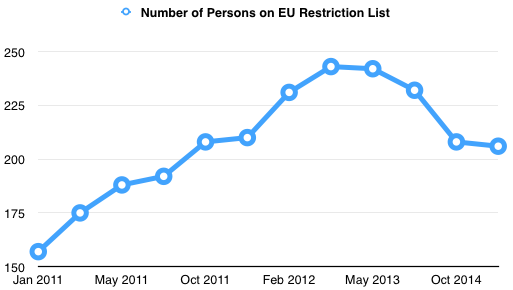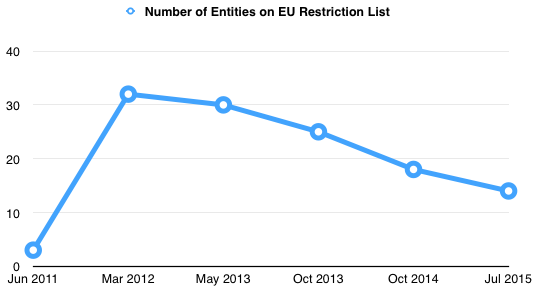Strengthening Border with Ukraine, Chinese Paratroopers – Belarus Security Digest

Chinese officials on a visit to Belarus. Image: mil.by
The situation in Ukraine continues to be a major concern for the Belarusian authorities, while the prospects of Russia's air base is still uncertain as Minsk maintains its low-profile cooperation with NATO.
Belarus is set to receive additional second-hand Russian S-300 missile systems but is unlikely to be the recipient of more modern systems anytime in the foreseeable future. In addition to the S-300s, Belarus is set to receive some additional transport helicopters from Russia.
Belarus revealed that it is cooperating with China to design a multiple rocket launcher system and Belarusian special operations forces held a third set of military exercises with their Chinese colleagues.
Increased Border Security with Ukraine
The authorities in Minsk are taking seriously the potential risk of the situation further destabilising in neighbouring Ukraine. In June, the Belarusian Army and Border Guard Committee spent several weeks testing a system of strengthening border control with Ukraine and the territorial defence system located in the Homel Province. The Belarusian Security Council emphasised that this exercise was routine, pointing to the fact that there was a similar exercise in 2014. The Chief Commander of the Special Operations Forces Vadzim Dzyanisenka also noted that the training they carried out had been planned long beforehand.
Belarus formed an additional border guard unit to guard its border with Ukraine Read more
The Security Council, however, conceded that Belarus had taken additional measures to guard its side of the Ukrainian border and formed an additional Mozyr Border Guard Unit last year. In addition, the scenario for the most training session included a battle with an armed band that invaded Belarus with the support of some local residents who underwent military training in a neighbouring country. This all suggest that Minsk had potential developments in Ukraine in mind when they drew up plans for the excercise.
On 19 June, the Chairman of Belarusian Customs Committee Yury Syanko expressed his concerns about attempts to bring weapons and ammunition into the country from Ukraine. This only four days after Alyaksandr Lukashenka discussed with Defence Minister Andrei Raukou measures for ensuring an “adequate response to developments on the southern [Ukrainian] border.”
How Can Belarus Upgrade its Weaponry?
Lukashenka and Raukou also raised questions about how to go about modernising Belarus's armed forces. Lukashenka stated that the army is already undergoing a third wave of adapting to new challenges through modernising it – the previous wave of 'adapting' apparently was apparently the result of the Arab Spring in 2011. Raukou also took time during the public discussion to discuss the testing of new rocket systems and other arms.
The following day, on 16 June, the Chairman of Military Technical Committee Siarhei Hurulyou reported to Lukashenka on the positive results of a Belarusian multiple launcher rocket system in China. Lukashenka critically remarked that, “Our ally, Russia, is as active in supporting our aspirations [as China is].” The new system is believed to be being designed together with the Chinese and contains elements of the Chinese Norinco AR3 multiple launcher rocket system.
Russia remains, of course, the main source of military equipment and related services for the Belarusian armed forces. On 17 June, the Belarusian Defence Ministry signed a contract with Russian Vertolyoty Rossii for 12 military transport helicopter Mi-8MTV-5. Belarus will get them in 2016-2017 and the helicopters will have the exact same specifications as those provided to Russia's armed forces.
In July, one of the world's largest defence holdings, Russian KRET, started overhauling and modernising Belarus' land-based electronic countermeasures stations. Four stations revamped and updated by 2017. Back in June, Belarusian defence firm Agat-Sistemy Upravleniya founded a joint venture with the Russian firm NPO Kvant, which is a subsidiary of KRET. The new joint venture REB-Technology will modernise Belarusian and Russian armies' radio-electronic equipment.
Raukou also announced that Belarus would receive four batteries of the S-300 surface-to-air missile (SAM) systems from Russia this year. These systems were previously deployed by Russian army who is now upgrading to the next generation of SAM systems, the S-400. Moscow and Minsk are in talks about Belarus potentially getting some S-400s as well, though at the moment it is unclear if it will.
According to Raukou, in 2014-2015 Belarus signed "some 50 contracts [with Russia] for the supply, repair and modernization of anti-aircraft missile systems, communications, electronic warfare technology, small arms and artillery weapons, ammunition, aviation equipment for the needs of the Belarusian army", on very favourable terms. He said that a majority of the contracts have been fulfilled.
Russian Airbase Still on Hold
On 17 June Defence Minister Raukou told the TASS news agency that Minsk believed the deployment of additional NATO forces and heavy weapons close to Belarus' borders created additional potential risks for Belarus. A day earlier, Lithuanian Defence Minister Juozas Olekas confirmed that the US was planning to store heavy weapons for up to 5,000 US troops in the Baltic countries and Poland.
In the same interview, Raukou said that the issue of Russia's airbase in Belarus was on hold until a clear political decision could be made. This statement undermined previous public announcements by Russian officials to the effect that a Russian base would be established in Babruysk in 2016. Minsk has never been interested in having this airbase open up and least of all now when it could be used to provoke NATO and Ukraine. As a result of these heightened regional tensions, it is unlikely that a Russian airbase will be opened in Belarus anytime in the near future.
In July, Belarusian delegation chaired by the head of the Belarus' General Staff Major General Aleh Belakoneu visited the regions where this year's joint military exercises with Russia will be conducted. The “Shchyt Sayuza” is held every other year, and this time around will take place from the 10-16 September in Russia.
From NATO to Qatar
Minsk continues with its drive to diversify its international contacts in the military arena. On 31 May – 5 June NATO experts conducted a seminar in Belarus for men of the peacekeeping company of the Belarusian 103rd Mobile Brigade of Special Operations. In June, Raukou said, "The interaction of our country with NATO has a practical orientation and corresponds with our national interests, though does not affect our alliance with Russia."
On 16 June, Defence Minister Raukou met the Secretary General of the Organisation for Security and Cooperation in Europe (OSCE) Lamberto Zannier in Minsk. They discussed military and political issues and signed a Memorandum of Understanding on a joint project concerning the utilisation of liquid rocket fuel.
Besides trying to develop its ties with Western countries, the authorities are working hard to improve relations with China. From 15-27 June, Chinese paratroopers participated in a joint anti-terror training excercise with a company of the Belarusian 38th Mobile Brigade of Special Operations on a site close to Brest. This was the third such Belarus-Chinese training excercised conducted since 2011. On 14-17 July, a Chinese delegation, headed by the deputy head of the Propaganda Unit of the General Political Department of the People's Liberation Army, Major-General Zhang Chanin, visited Belarus.
Some military interaction occurred also with India and Qatar. In June, India gave Belarus 25 of its newest mine detectors, the Minelab X-Terra. Last year, India also gifted Belarus 60 radio sets and 30 GPS-navigation systems. On 2-5 July, Minister of State for Defence Affairs of Qatar, Hamad bin Ali Al Attiyah visited Belarus and met with President Lukashenka. Belarus has been cooperating with Qatar on security matters for years now, cooperation which has included Belarusian forces providing specialised military training to Qataris.







